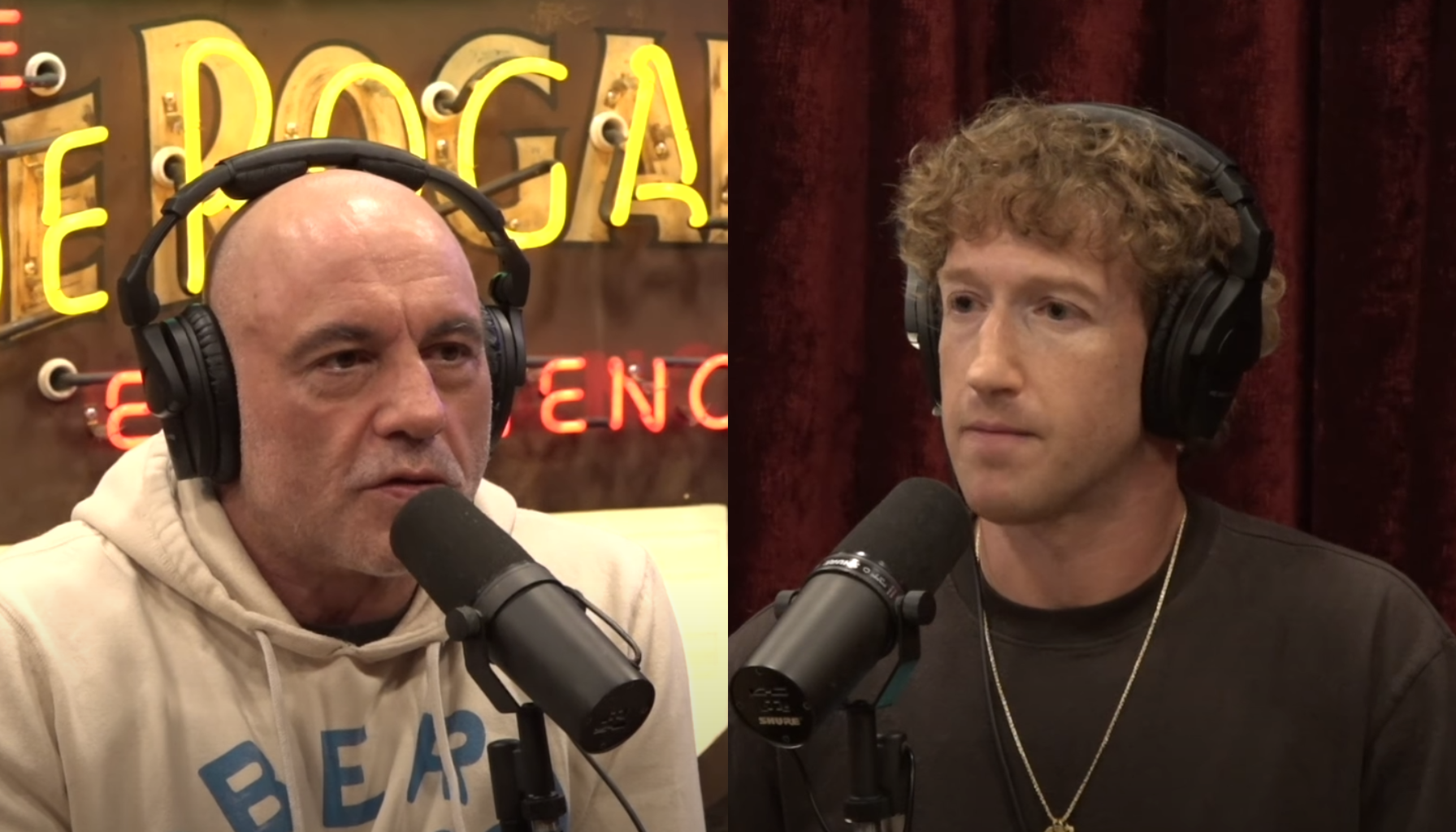Big Tech’s Reckoning
The Joe Rogan Experience always delivers, and Episode #2255 was no different. This time, Mark Zuckerberg—the ever-elusive Silicon Valley kingpin—sat across from Rogan, peeling back layers of Big Tech’s grip on speech, politics, and truth itself. What followed was a candid, at times shocking, at times maddening, deep dive into how Facebook evolved from a college social network into a worldwide censorship machine.
The “Free Speech” That Wasn’t
Zuckerberg admitted what many suspected: Facebook started with the right idea. Early on, it was all about giving people a voice, letting them share freely, and keeping the internet open. Sure, some things needed moderation—bullying, copyright theft, clear violations. But political censorship? Not even a thought.
Then 2016 happened. Trump’s victory stunned the world, Brexit shook the EU, and Silicon Valley found itself in the crosshairs. The elite, media, and political class weren’t willing to accept that people simply wanted change. No, they needed a scapegoat. “Misinformation.” “Russian interference.”
Zuckerberg admitted that, at the time, he leaned too much on the media’s take—believing Trump’s win wasn’t totally legitimate. That Facebook had a responsibility to correct the “misinformation” that got him elected. And just like that, free speech on the platform faded under a mountain of new censorship rules.
The FBI’s Role & Government Overreach
Things got even darker when Rogan asked about government involvement in Facebook’s moderation. It wasn’t just media pressure—Facebook was taking cues straight from the FBI.
Zuckerberg confirmed that federal agencies warned his platform about supposed “threats to democracy.” Some of these posts turned out to be outright fabrications. Others were just opinions that didn’t fit the establishment narrative. The effect? Facebook became an unofficial arm of the government’s censorship machine.
And, let’s be honest, the timing was never random. Every major speech crackdown seemed to coincide with an election or political flashpoint. The 2020 election? Social media scrubbed discussions about Hunter Biden’s laptop—a story that could’ve derailed Joe Biden’s campaign. COVID-19? Facebook silenced dissenters, even when they ended up being right.
COVID-19: The Ultimate Censorship Test
The pandemic didn’t just reshape public health policy—it turned Big Tech into a truth ministry. Zuckerberg admitted Facebook leaned hard on “authoritative sources” like the CDC and WHO. The result? Debate was strangled before it even started.
Take the lab leak theory. Early discussions about it were buried, dismissed as wild conspiracies. But now? Even U.S. intelligence agencies admit it might be true. Facebook helped silence that conversation when it mattered most.
When Rogan asked if this kind of suppression had eroded public trust, Zuckerberg shrugged. Mistakes were made, sure, but they were “good faith” mistakes. Tell that to the people who got banned for questioning the narrative—only to be proven right later.
Big Tech & Political Division
One of the most revealing moments? Zuckerberg admitting what everyone already knew: outrage fuels engagement. More divisive content means more likes, more shares, more ad dollars.
But here’s the twist—Facebook doesn’t just let things play out naturally. It actively suppresses some viewpoints while amplifying others. The Hunter Biden laptop story? Buried. Conservative outlets? Demoted. Meanwhile, corporate media, left-leaning “fact-checkers,” and government-approved narratives get boosted.
So, is this really just the algorithm, or is something more intentional happening?
The Public Square Debate
Rogan pressed the issue: should social media be treated like a public square, protected by free speech laws?
Zuckerberg danced around it. He didn’t want Facebook to be an “arbiter of truth,” yet argued platforms should limit harmful content. He likened Facebook to a newspaper, not a town square—convenient, since newspapers get to pick what stories to print.
But let’s be real—Facebook, Instagram, Twitter (now X) are the modern public square. Silencing voices on these platforms is no different from the government shutting down a political rally. And with the revolving door between Big Tech and Washington, it’s getting harder to tell where corporate control ends and state influence begins.
The Future: Decentralization & AI Moderation
So where do we go from here? Zuckerberg hinted that the Metaverse might lead to more decentralization, taking power away from Big Tech giants. AI moderation could also be part of the answer—but that raises a whole new question: Who’s programming the AI, and whose biases is it learning from?
He also acknowledged that government regulation might be inevitable. But history has shown—more regulation often means more power for elites, less freedom for users.
The Takeaway: Big Tech’s Grip on Free Speech
This conversation offered a rare glimpse into the mind of a tech billionaire who’s shaped the digital world for over a decade. While Zuckerberg admitted to some missteps, the core problem remains:
- 2016 & 2020 changed everything. Facebook shifted from free speech absolutists to ideological gatekeepers.
- Government influence is undeniable. The FBI, CDC, and other agencies directly shaped what people could say.
- COVID-19 accelerated censorship. Many “misinformation” claims were later proven true.
- Algorithms fuel division. The engagement-driven model thrives on outrage while suppressing select perspectives.
- Big Tech doesn’t want to be neutral. They curate content while pretending to be mere platforms.
So the real question: Will anything actually change? Will social media shift towards decentralization and free speech, or will it keep playing the role of thought police?
One thing is certain—Silicon Valley isn’t just shaping conversations. It’s shaping democracy itself. And that should concern everyone.

